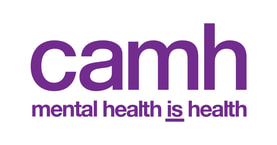Research has shown that youth often report a negative experience during the transition between child/adolescent and adult mental health services, and as many as 50% disengage from care entirely during this time. However, we know little about how exactly the transition experience impacts functioning and mental health outcomes for youth or about the barriers and enablers to good mental health during this transition, particularly within the Canadian context. Additionally, there is no available evidence regarding how transition experience affects youths’ functioning and service use trajectories over time as they progress through young adulthood.
Our Study
This study, which broadly aims to explore the transition experience and its impact on mental health and service utilization outcomes for youth, encompasses a mixed-methods design, including a quantitative longitudinal cohort study of a clinically referred sample of 237 youth, and a qualitative study of youth, caregiver and service provider experiences of mental health transitions.
Within the longitudinal cohort study, youth aged 16-18 who are accessing child and adolescent mental health services (CAMHS) at 4 different sites – Centre for Mental Health and Addictions, SickKids, the SickKids Center for Community Mental Health, and the George Hull Centre – complete a set of standardized measurement tools (assessing transition experience, service utilization, symptom experience, and functioning) annually over six time points. The qualitative component includes semi-structured interviews with 12 youth receiving mental health services, 12 caregivers, and 12 service providers. Interviews are conducted at two time points: pre- and post-transition for youth and caregivers and CAMHS/AMHS for service providers.
Within the longitudinal cohort study, youth aged 16-18 who are accessing child and adolescent mental health services (CAMHS) at 4 different sites – Centre for Mental Health and Addictions, SickKids, the SickKids Center for Community Mental Health, and the George Hull Centre – complete a set of standardized measurement tools (assessing transition experience, service utilization, symptom experience, and functioning) annually over six time points. The qualitative component includes semi-structured interviews with 12 youth receiving mental health services, 12 caregivers, and 12 service providers. Interviews are conducted at two time points: pre- and post-transition for youth and caregivers and CAMHS/AMHS for service providers.
Understanding barriers and facilitators to positive transition experiences, as well as how these transition experiences impact youth mental health, service trajectories, and functioning into adulthood, is key in developing more effective care models for youth using mental health services. Study findings will address an important knowledge gap in our mental health care system and guide the development of future intervention studies and tools aimed at facilitating effective and positive transition experiences for youth and families.
Learn more about LYiTS by reading our protocol paper.
Read our paper which describes the LYiTS cohort at baseline and examines differences between youth receiving hospital- versus community-based mental health services








